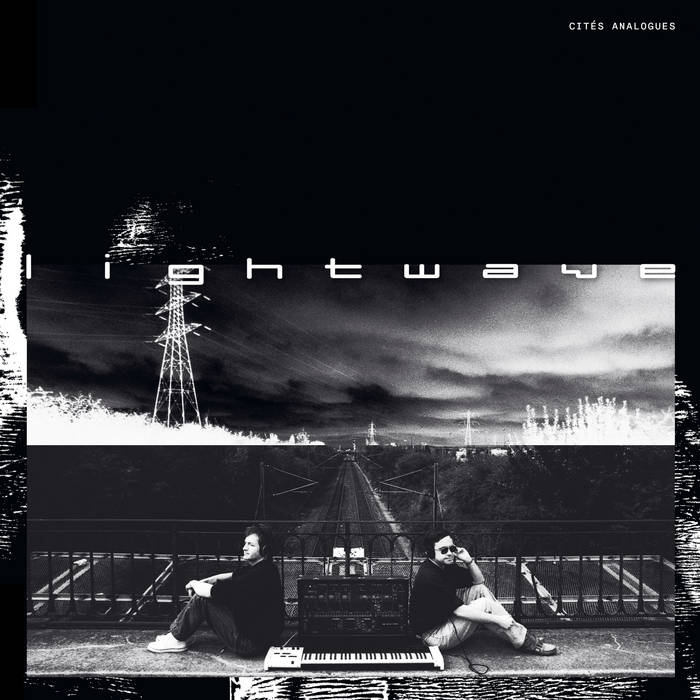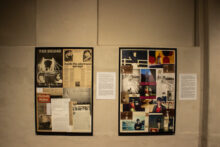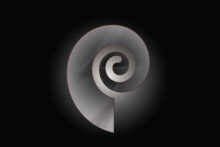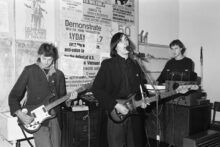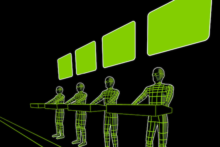Since its invention, the synthesizer has been a powerful tool that has allowed artists to harness feelings of utter loneliness and detachment in their music, often to match feelings of disenfranchisement and disassociation with a technologically transforming world. Alongside the rise of Kraftwerk, the emergence of Britain’s alienated synthesists in the 1970s’ tail end is one of electronic music’s most widely documented happenings and for good reason. As synthesizers became commercially accessible, a collective of rogues and eccentrics used them for a series of experiments and projects that had a profound impact on popular music. The analogue antics of Daniel Miller, Chris Carter, and Cabaret Voltaire have been deservedly mythologised, and generations have taken influence from those synth experiments of Sheffield basements and London warehouses past. As we hurtle closer and closer to a technology-driven extinction, this kind of music feels more prescient than ever.
The 1980s saw a period of refinement and fragmentation for synthesizer music. Its enthusiastic embrace at the hands of pop music, and its dominance of dancefloors and discotheques, probably live longest in the popular imagination. But on the fringes, the world over, the limitless possibilities of the instrument were being explored, its limits were still pushed by a cast of fearless experimentalists.
One such group was Lightwave. A Parisian progressive electronic ensemble formed around the core duo of kindred dabblers Christian Whitman and Christoph Harbonnier, Lightwave’s discreet and novel synthesizer pieces place them somewhere between the industrial alienation of the late 70s British pioneers and the meditative textural works of The Berlin School adventurers like Klaus Schulze and Manuel Göttsching.
Freshly reissued for the first time this month, 1988’s Cités Analogue is the first album that Whitman and Harbonnier collaborated on, the project’s true inception. Largely recorded live, it’s a rich tapestry of disjointed melodies conjured up on an arsenal of synthesizers, of clunking percussion and disembodied vocal fragments. One vast liminal space.
The end result is an album that sounds, surprisingly, so thoroughly modern in its execution that it could easily slip under the radar as a new release.
The title track is the record’s centrepiece. A stirring composition that sees the duo slowly adding, and adding to an undulating synth texture that slowly evolves into a mechanical colossus over its fifteen-minute runtime. It’s a collage that sees the group wide-eyed, excitedly adding layer after layer with joyous aplomb; juddering arpeggios, soaring string-sounds, the track is punctuated by everything from percussive slams and scrambled vocal samples.
‘Airport’ and ‘News’ are two of the album’s more discreet tracks, but a duo that see Whitman and Harbonnier’s vision perhaps best realised. Skeletal, eerie textures meld with samples of airport chatter and a fading-in-and-out English language radio signal respectively, creating the cold, urban sound that Lightwave strive for in perfect microcosm. There’s something of the uncanny, of the Ghost Box, about the group’s presentation of different spaces here, a machinelike coldness that is only drawn into sharper focus by the addition of human chatter.
In contrast stands ‘Le Parvis’, which was put out as a single last year, a real stomper that leans heavily on a phantomic low-end bass groove, which, whilst not necessarily out of place, is way more pummelling, writhing, grooving than the rest of the album. It sees the group channel the same urban soundworld, but into something that sounds more optimistic, all fizzing and crackling, automaton joy.
Lightwave would, of course, go on to spend the next few decades refining this sound, sophisticating their rigs and smoothing off the edges. However, Cités Analogues probably showcases the best of the project, with its stark, tactile, and sometimes incongruous live collage feel recalling a time where the synthesizer represented a world of truly endless possibilities.
In a saturated world of reissues and re-releases, Cités Analogues is unlikely to win over any non-synth heads at all, but the bold collages and distant, fragmentary scraps make this a novel addition to the alienated synthesist cannon.

